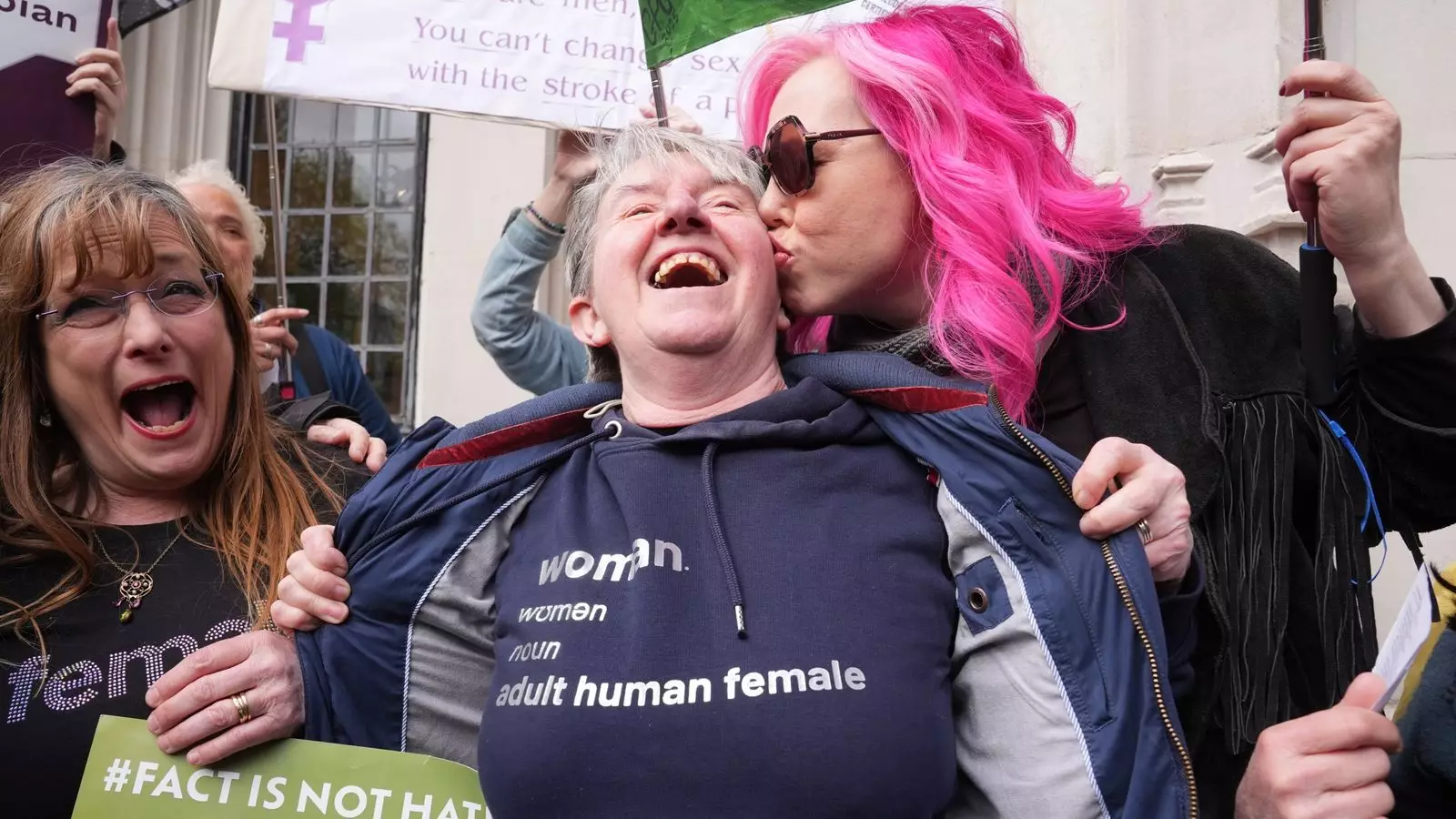For too long, the discourse surrounding gender and sex in the UK has been marred by an insidious blend of emotion and controversy. Today marks what can only be described as a pivotal yet troubling moment in this saga, as the highest court in the land delivered a unanimous verdict that places the weight of biological determinism squarely upon the shoulders of individual identity. This ruling, which effectively posits that holders of gender recognition certificates are not recognized as women under the law, symbolizes much more than just a legal decision; it is a reflection of the societal fissures that have intensified over recent years.
The long and arduous path that led to this ruling involved evaluating two pieces of legislation: the Gender Recognition Act of 2004 and the Equality Act of 2010. The previous understanding, one that allowed individuals to identify according to the gender they have transitioned to, has now been thrown into jeopardy. Those who once believed that a GRC guaranteed them the rights aligned with their gender identity learned today that those rights are now up for debate, relegated by a verdict steeped in a narrow legal construct.
The Echoes of Division
Today’s ruling serves as a double-edged sword, impacting not just the trans community but also women’s rights activists who championed the case, hoping to clarify their own place in society. It is alarming how this outcome plays into a broader narrative of division that seeks to pit trans rights against women’s rights, as if they were mutually exclusive. The court made it clear that while discrimination against trans individuals would still be illegal, the nature of their identity now undergoes renewed scrutiny. Voices from the trans community reverberated with disappointment, as one trans woman articulated her acute sense of loss, declaring the verdict an outright attack on her rights.
The joy displayed by women’s rights groups, such as For Women Scotland, at the announcement of the ruling reveals a troubling triumphalism that could undermine the significant, hard-won advances in equality. As they celebrated, the film of jubilation was ironically shadowed by the pain and fear felt by a marginalized community. This ruling does not herald a new dawn for equality; instead, it signals an uneasy stalemate in the ongoing struggle for recognition and rights.
The Political Ramifications of the Verdict
The fallout from this ruling will certainly add fuel to the fire as we approach the upcoming elections, particularly concerning the Scottish Parliament. John Swinney’s muted acceptance of the ruling contrasts sharply with Sir Keir Starmer’s fervent endorsement of single-sex spaces, suggesting a divide not just in public opinion but also in political maneuvering. The SNP’s previous bold stances on gender laws seem increasingly perilous, given the newly entrenched legal landscape. It is unlikely that any attempt to revive controversial gender reforms will materialize, given that the political climate has shifted drastically with this ruling.
The courtroom drama reflects a larger societal debate that is far from being resolved and may lead to an intensified culture war. Would-be leaders and activists must navigate a labyrinthine set of beliefs and opinions that have become entrenched in the public consciousness, creating significant barriers to progress. When one segment celebrates a court decision, another is left grappling with an uncertain future.
In the Eye of the Storm
As we sit in the aftermath of this ruling, it is imperative to approach the discussion with an understanding that progress often comes at a cost. The legal verdict may provide clarity on definitions, but it complicates the lived realities of individuals who do not see themselves solely in biological terms. Each day spent in a society that categorizes individuals so rigidly not only stifles personal authenticity but invites fear and anger to thrive. The protracted debate over gender rights reflects a broader struggle over personal freedoms and the inherent recognition of humanity in all its forms.
In a world striving for innovation and progress, laws that mirror outdated notions of identity should not be tolerated. The court decision has galvanized various factions, underscoring the urgent need for dialogue that is nuanced and empathetic, rather than reductive and binary. In confronting this legal verdict and its implications, society must grapple with hard truths about identity, acceptance, and the pathways to a genuinely inclusive future.


Leave a Reply